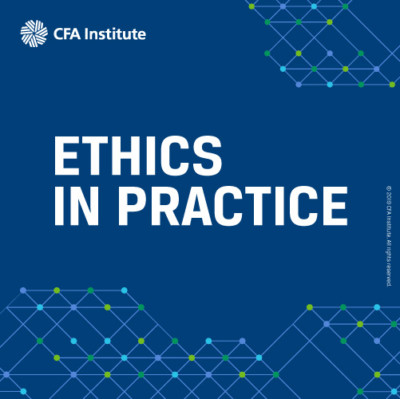Ethics in Practice: Hiring Investment Personnel. Case and Analysis–Week of 9 September
How did you do evaluating this week’s (9 September) case? Check out the analysis below.
Case
Estevez is the chief compliance officer of a global financial services corporation. He and his staff develop and implement policies and procedures to address antibribery and corruption issues. The policies prohibit employees from providing “anything of value” to government officials to gain an improper business advantage. The policies specifically define “value” to include job offers or employment to individuals at the request of a client, potential client, or official of a government or state owned enterprise. The policy also prohibits employees from hiring anyone as a temporary employee, intern, or in other roles in an attempt to evade the policy. The company uses a questionnaire that requires employees seeking to hire a referral candidate to disclose the source of the referral, identify whether the referral source is a client or prospective client, and disclose whether the potential hire was referred by or related to a government official. The compliance policies require the questionnaire to be submitted to both the compliance and the human resources departments for approval.
On multiple occasions, senior members of the company’s Asia-Pacific (APAC) office, seeking to obtain or retain business, attempt to hire relatives of state-owned enterprises and government officials, but these applications are rejected by Estevez as violations of the firm’s compliance policies. The firm’s APAC officials then direct a regional-affiliated organization to hire the referred individuals. As employees of the affiliate, these referral hires are permitted to do work for the firm. Several months later, the employees, having gained experience, are brought into the firm as lateral hires from the firm’s affiliate. Choose the response that best describes how Estevez met his professional responsibilities with respect to the CFA Institute Code of Ethics and Standards of Professional Conduct (Code and Standards). Estevez
- drafted comprehensive compliance policies regarding referral hires.
- fulfilled his responsibilities because he rejected the APAC officials’ attempts to hire individuals in violation of the firm’s policies.
- properly allowed referred hires to gain experience at an affiliate prior to joining the firm.
- did not appropriately meet his professional responsibilities under the Code and Standards.
- none of the above.
Analysis
This case relates to effective implementation of compliance policies and supervision of employees. CFA Institute Standard IV(C): Responsibilities of Supervisors requires CFA Institute members to make reasonable efforts to ensure that anyone subject to their authority complies with applicable rules and regulations. As chief compliance officer for the firm, Estevez is responsible for developing and implementing effective compliance policies and has effective supervisory responsibility over firm employees. He recognizes that hiring relatives of foreign government officials and other clients in exchange for business could violate antibribery laws. He drafts written hiring policies and a questionnaire to address these types of hires as a way to detect and prevent corrupt hiring practices.
But these policies do not apply to all categories of hires, are easily circumvented, and are not effectively enforced. Although Estevez rejects referred candidates for employment that violate firm policies, senior members of the firm’s APAC offices regularly get around the policies by hiring rejected candidates as employees of a regional affiliate that is apparently not covered by the firm’s compliance procedures. Referred candidates hired by the affiliate engage in work for the firm and are eventually hired as full-time employees at the firm. The compliance procedures thus do not effectively mitigate known corruption risks and allow APAC employees to award valuable employment opportunities to the relatives of foreign government officials as a personal benefit to the officials in an attempt to improperly influence them to assist the firm in obtaining or retaining business or other benefits. Choice D is the best response.
This case is based on an August 2019 US SEC enforcement action.
Let us know what you think of Ethics in Practice by taking this short survey.
Have an idea for a case for us to feature? Send it to us at [email protected].
More About the Ethics in Practice Series
Just as you need to practice to become proficient at playing a musical instrument, public speaking, or playing a sport, practicing assessing and analyzing situations and making ethical decisions develops your ethical decision-making skills. The Ethics in Practice series gives you an opportunity to “exercise” your ethical decision-making skills. Each week, we post a short vignette, drawn from real-world circumstances, regulatory cases, and CFA Institute Professional Conduct investigations, along with possible responses/actions. We then encourage you to assess the case using the CFA Institute Ethical Decision-Making Framework and through the lens of the CFA Institute Code of Ethics and Standards of Professional Conduct. Then join the conversation and let us know which of the choices you believe is the right one and explain why. Later in the week, we will post an analysis of the case and you can see how your response compares.
Image Credit: ©CFA Institute

